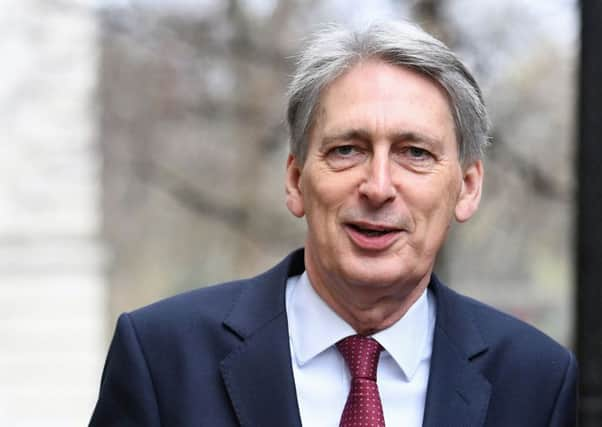Government borrowing falls as public finances improve


Public sector net borrowing, excluding state-owned banks, fell by £1 billion in February to £200 million, the Office for National Statistics (ONS) said on Thursday.
It represents the lowest February borrowing figure since 2017. Economists had expected net borrowing of £600 million.
Advertisement
Hide AdAdvertisement
Hide AdBorrowing in the current financial year-to-date was £23.1 billion, £18 billion less than in the same period last year and the lowest 12-month figure since 2002.
The latest data comes just a week after the Office for Budget Responsibility (OBR) said that borrowing is expected to be lower this year, coming in at £22.8 billion, down £2.7 billion since October.
The fiscal watchdog put this down to higher income tax receipts and lower debt interest spending.
This, alongside lower medium-term borrowing forecasts, means that the Chancellor’s headroom in the public finances has increased from £15.4 billion at the Autumn Budget to £26.6 billion.
Advertisement
Hide AdAdvertisement
Hide AdHowever, in a blow to Mr Hammond, changes to the way student loans are accounted for mean the structural budget deficit could increase by around £12 billion in 2020-21.
The OBR also slashed its expectations for growth this year to the lowest level since the financial crisis, as the Chancellor warned of a Brexit “cloud of uncertainty” hanging over the UK’s economy.
Gross Domestic Product (GDP) is now expected to grow by 1.2% in 2019, compared with a previous prediction of 1.6%.
New ONS figures also showed that the UK’s contribution to the European Union was £2.9 billion in February, £1 billion higher than the same month last year.
Advertisement
Hide AdAdvertisement
Hide AdThis was the highest cash payment in any month on record, and comes just a week before Britain’s scheduled departure from the bloc.
“This is due largely to the timing of payments made to the EU by all member states rather than a reflection of any budgetary increase,” the ONS said.